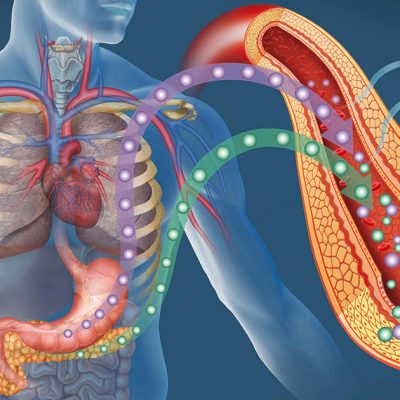The exact causes of most mental illnesses are unknown but there are many known factors at play. These can be biological, psychological and environmental.
Causes vary from person to person and the arise of a mental health condition can be complicated. For most people who suffer from mental illnesses, the cause is ultimately a combination of hereditary and environmental factors.
Everybody can benefit from learning about mental illness. Disorders are known to affect almost one in every two people at some stage in their life.
The survey estimated that 45 per cent of Australians had experienced a mental disorder in their lifetime, with 20 per cent experiencing a mental disorder in the previous year.
Parliament of Australia
Genetic Factors
Most mental illnesses run in families. Twin studies have shown that there is a definite genetic factor.
While your family history doesn’t necessarily cause you to have the illness as well, it does put you at greater risk for developing it. In the case of schizophrenia, for example, people with close relatives that have the disorder are ten times more likely to develop it themselves. Chronic depression and bipolar disorder are similar.
Chemical Imbalance
Neurotransmitters are chemicals in the brain through which the brain communicates with the nerves. When these chemicals are not working properly, the brain doesn’t function regularly and this abnormal functioning leads to mental illness. This is why medications are used to treat symptoms. They restore normal brain functioning.
Early Development
Neglect or abuse in early life can lead to serious mental problems in adulthood. Severe emotional, physical and sexual abuse can all be contributing factors. The loss of a parent or any other traumatic event can lead to lifelong mental problems.
Long-Term Drug Use
There’s a strong connection between drug use and mental illness. It’s often hard to tell if the person is self-medicating to get rid of the symptoms or the drug triggers the symptoms. Marijuana, cocaine, amphetamines, psychedelic drugs such as LSD, alcohol and even seemingly harmless caffeine have all been linked to mental disorders. Long-term abuse of any substance can lead to anxiety, depression and paranoia.
Disease or Injury
Traumatic brain injury or exposure to toxins in the womb can cause mental illnesses. Lead in paint has been found to cause mental problems and certain foods are shown to contribute to ADHD. Infections that affect the brain can cause damage to areas involved in personality and thinking. The effect of disease and injury on the brain is not well understood because researchers have few chances to study real-life cases.
Life Experiences
Any kind of trauma that is either extremely stressful or persistent can lead to mental problems. The death of someone close to you, the experience of war, long-term harassment, working too hard or even being unemployed for too long can cause mental problems.
Society and Culture

Societal factors also contribute. There is a higher level of mental illness among immigrants, the poor, and people who lack social cohesion. Many blame the hectic pace of modern life and the dissolution of traditional values for the rise in psychological disorders. Racial oppression can also be a factor. However, there is little scientific evidence to support these social and cultural factors.
If you’re worried that you may suffer from a mental illness, seek professional help immediately. A qualified professional can diagnose you, help you find the causes, and get you started on the right treatment.
Mental Health Treatment

Treating mental health is a challenge given the causes are varied. Moreover, many of the underlying reasons for mental illness cannot be undone. You cannot, for example, change your genetic composition, undo your childhood or a past trauma, or change your family or broader society.
But improved mental health and functioning is a realistic goal. In a clinical setting, doctors, psychologists and other mental health professionals aim to provide holistic treatment. Many different professionals have training in psychology while many others, such as nurses, physicians, teachers and spiritual leaders, have skills in counselling and connecting people to treatment services.
In Australia, mental health courses teach nurses to deal with patients on all levels. Healthcare professionals address the immediate emotional and psychological needs of a patient through to behavioural change, physical treatment, socialisation and spirituality.
If you need assistance for any kind of mental health problem, it is a good idea to reach out. As well as talking to somebody you trust, which could be family, a friend or a doctor, specialist services are available. Mental Health Australia provides an online list of services.









